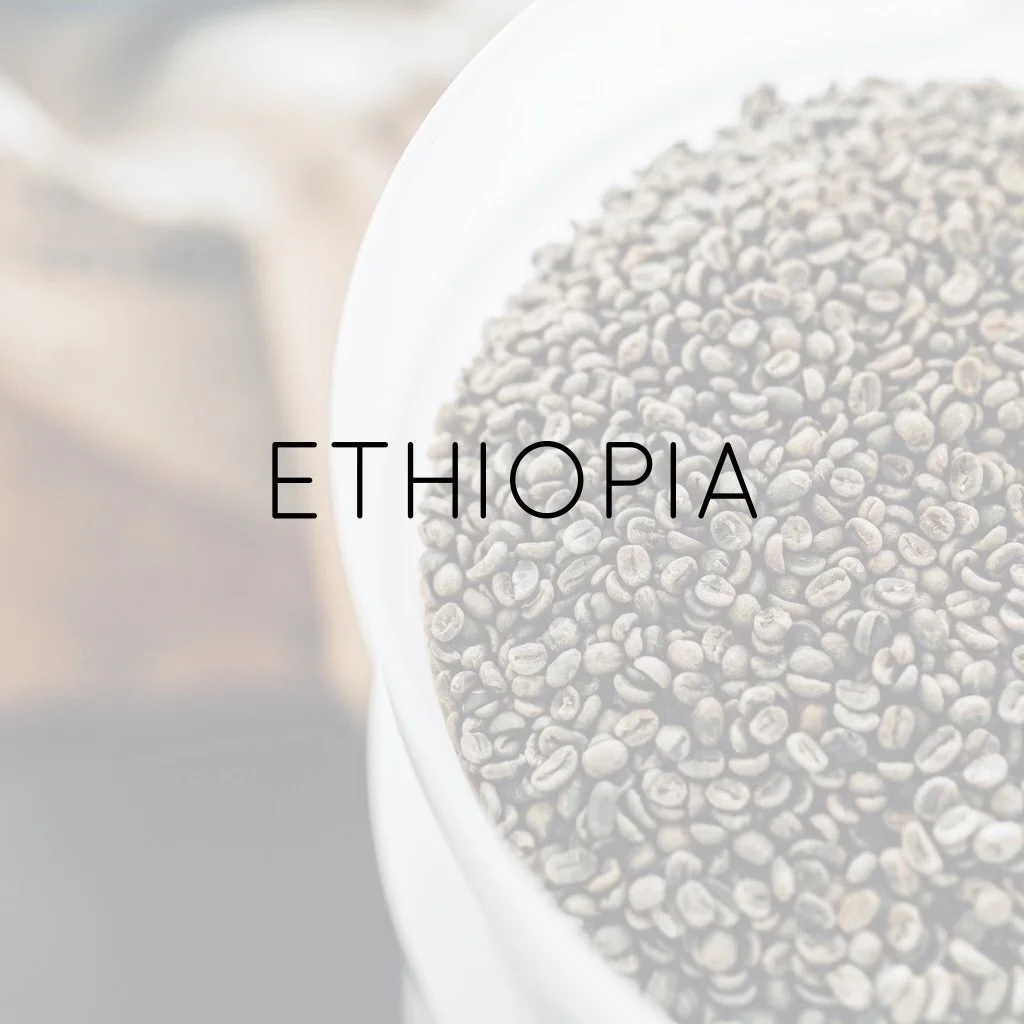Ethiopia Yirgacheffe
Ethiopia Yirgacheffe
Among coffee-producing countries, Ethiopia holds near-legendary status not only because it’s the “birthplace” of Arabica coffee, but also because it is simply unlike every other place in the coffee world.
THE CUP: Praline, Apricot Jam, Raspberry, Toasted Coconut with Vibrant and Smooth Acidity
REGION: Yirgacheffe
ELEVATION: 1800 - 1920 MASL
PROC METHOD: Natural
Among coffee-producing countries, Ethiopia holds near-legendary status not only because it’s the “birthplace” of Arabica coffee, but also because it is simply unlike every other place in the coffee world. Unlike the vast majority of coffee-growing countries, the plant was not introduced as a cash crop through colonization. Instead, growing, processing, and drinking coffee is part of the everyday way of life, and has been for centuries, since the trees were discovered growing wild in forests and eventually cultivated for household use and commercial sale.
From an outsider’s perspective, this adds to the great complexity that makes Ethiopian coffee so hard to fully comprehend—culturally, politically, and economically as well as simply culinarily. Add to that the fact that the genetic diversity of the coffee here is unmatched globally—there is 99% more genetic material in Ethiopia’s coffee alone than in the entire rest of the world—and the result is a coffee lover’s dream: There are no coffees that are spoken of with the reverence or romance that Ethiopian coffees are.
One of the other unique aspects of Ethiopia’s coffee production is that domestic consumption is very high, because the beverage has such a significant role in the daily lives of Ethiopians: About half of the country’s 6.5-million-bag annual production is consumed at home, with roughly 3.5 million bags exported.
Coffee is still commonly enjoyed as part of a “ceremonial” preparation, a way of gathering family, friends, and associates around a table for conversation and community. The senior-most woman of the household will roast the coffee in a pan and grind it fresh before mixing it with hot water in a brewing pot called a jebena. She serves the strong liquid in small cups, then adds fresh boiling water to brew the coffee two more times. The process takes about an hour from start to finish, and is considered a regular show of hospitality and society.
The majority of Ethiopia’s farmers are smallholders and sustenance farmers, with less than 1 hectare of land apiece; in many cases it is almost more accurate to describe the harvests as “garden coffee,” as the trees do sometimes grow in more of a garden or forest environment than what we imagine fields of farmland to look like. There are some large privately owned estates, as well as co-operative society comprising a mix of small and more mid-size farms, but the average producer here grows relatively very little for commercial sale.

